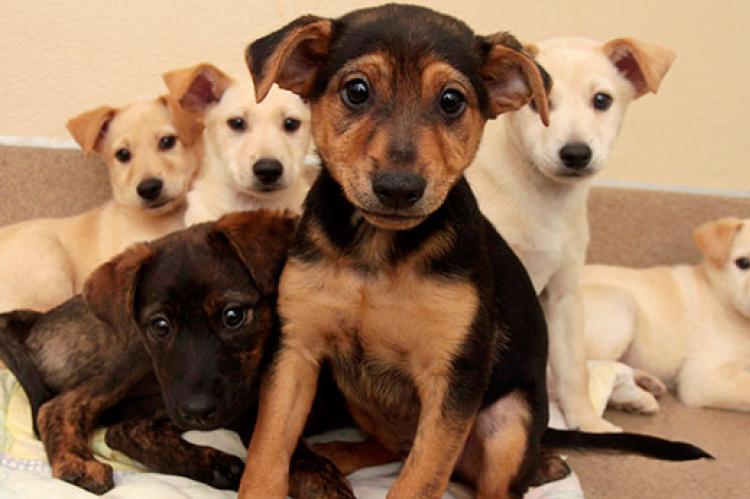How to Choose a Dog: Find Your Match

Caring for a dog can be very rewarding, but it's best not to bring a new dog home without some prior thought. It's important to pick a dog who's a good match for your home and lifestyle. Here are some tips for how to choose a dog.
Part 1: Should I get a dog?
There are several questions to ask yourself and anyone who lives with you before choosing a dog. You’ll want to consider what is involved in caring for a dog: basic care, medical needs, training, and behavior. Here are some standard questions to ask:
- Do I have the time to give a dog love and attention?
- Can I offer a dog adequate exercise and socialization with people and/or dogs (if the dog is dog-friendly)?
- Am I prepared for the costs associated with having a dog, including routine vet care?
- Are my emotional expectations realistic? (A dog is not a furry little person.)
Should I get a puppy?
One of the first questions people often ask themselves when choosing a dog is whether to get a puppy. Do you have the time or the inclination to raise a puppy? Puppies require lots of time and attention. You will most likely need to work on house-training a puppy and socializing them to people, dogs, and other animals. If you're gone for long periods of time, are you willing to pay for daycare or a sitter?
To grow into emotionally balanced and safe dogs, puppies must be socialized and introduced to various things they’ll experience in their lives, including riding in a car, being handled for medical procedures, having their nails trimmed, and being brushed. You’ll want to make sure that your puppy develops positive associations with all these things.
Furthermore, think about how big the puppy will grow to be and how active they'll be. If you live in an apartment in a city, you’ll want to make sure you have a space where you can exercise your dog. If you're a couch potato, you might want an older or more sedentary dog.
Should I get a purebred dog?
In the dog selection process, many people also consider dog breed. If you decide that you want a purebred dog, investigate the breed carefully before choosing a dog.
Note that today’s purebred dogs might not have all the behavior traits that they were once bred for, and every dog is an individual. If you are looking for a purebred dog to perform a specific task, consider finding a reputable breeder. Ask lots of questions about how the dogs are housed, what veterinary care the breeders provide, and how often they breed the female dogs. It’s also important to visit the breeders’ home to see where the mom and puppies are being kept.
Part 2: How to choose a dog
So you've decided that you're going to get a dog. How do you choose a dog who will be a good fit for you and your lifestyle? Consider the following:
- Activity level of the household: Do you want an exercise partner or a couch potato?
- Free time: If you work long hours away from home, it doesn’t mean you can't have a pet, but you might want to consider getting a cat who’s independent or an older dog who is comfortable being home and relaxing all day.
- Housing: Some dogs are noisier than others, and some need more space for exercise and play than others. If you live in an apartment, neighbors might complain about pet noises.
- Age of the pet: Many people want to get a puppy to start with a “clean slate,” but an older pet already has an established personality and behaviors, which means it can be easier to find the right fit. An adult dog might already be house-trained and might not have a puppy’s destructive behaviors.
- Medical needs: You’ll need to keep up with basic vaccines and checkups at the vet. Does the pet have other medical concerns that must be addressed?
There are many wonderful dogs (including purebreds) at your local shelter and rescue groups. When you choose one of these dogs, you often get the added bonus of knowing that you have saved a life. Petfinder is a good place to start looking for a dog to adopt.
When you contact the shelter or rescue group from which you’re considering adopting, ask plenty of questions and give details about what type of dog you are looking for. Most rescue groups are foster-based, which means their pets have been living in homes. This provides an opportunity for you to ask questions about how the dog has fared in a home setting.
Before going to meet a potential canine candidate, learn about dog body language to help you recognize the dog's comfort level. When you go to meet the dog, take some high-value treats to start the dog’s positive association with you. But keep in mind that a shelter can be a stressful place, so you might not be seeing the dog's true personality shine.
If you have children or other people you live with, it’s a good idea to bring them to the shelter or rescue group when you’re meeting the dog. You want to see how the dog reacts to everyone (introduce one person at a time) and whether everyone is comfortable with the dog.
Bringing a new dog home
You've selected your new dog. Congrats! Even if the dog has been in foster care in a home, remember that not all dogs acclimate quickly to a new home environment, new people, and new routines. It is not uncommon for a dog to settle into a new home and exhibit previously unknown behaviors. If any of the behaviors are concerning, please seek assistance from a trainer.